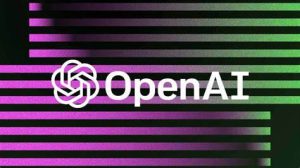“Information literacy is the single most important skill to develop if we are to counter the misinformation that convincing AI-generated text can produce.”
The following is a list of topics, links, and news for educators to learn about ChatGPT and to address the most fundamental change in education, since the number 2 pencil.
- AI-assisted plagiarism? ChatGPT bot says it has an answer for that – TheGuardian:
“In a lecture at the University of Texas, OpenAI guest researcher Scott Aaronson said that the company was working on a system for countering cheating by “statistically watermarking the outputs”
- New bot ChatGPT will force colleges to get creative to prevent cheating, experts say -Yahoo: “It will reinvigorate the love of pen and paper…”
Academic institutions will need to get creative and find ways to integrate new technologies like ChatGPT into their curriculum just like they did during the rise of the calculator…
“It’s important to be talking about this right now and to bring students into the conversation,” Fyfe said. “Rather than try to legislate from the get-go that this is strange and scary, therefore we need to shut it down.”
- Universities like Georgetown are attempting to detect cheating with ChatGPT. They will fail.
There is only one solution here: Teach students how to use AI to write, what it’s weak at, and how to improve it.
Outlawing tools is dumb. We are not teaching how to write without AI. We are teaching how to think and write with all available tools.
- Anti-Cheating Education Software Braces for AI Chatbots, Bloomberg:
Another option is for schools and colleges to acknowledge the new reality posed by AI and change how they evaluate students. “The days of asking students to summarize the themes in The Odyssey – no, that’s an easy question one would get from an AI model,” said Annie Chechitelli, Turnitin’s chief product officer. Instead, teachers could ask the class to explore themes of hospitality in the epic poem and then put them in the context of current events, which would defeat AI models like ChatGPT that don’t ingest current news sources. She also envisions a time when teachers ask students to record a video explaining or defending what they wrote.
- ChatGPT and the rise of AI writers: how should higher education respond?, TimesHigherEducation:
If universities want to stay true to their missions of equity, inclusion and access, then we need to keep and develop these alternative assessments. The task now is to design assessment that incorporates AI-generated text. Not least because upon graduation, students will be using this technology in the workplace.
Assessing only a completed product is no longer viable. Assessment needs to shift to process. This has always been the case, but ChatGPT is forcing the issue. Scaffolding in the skills and competencies associated with writing, producing and creating is the way forward.
- AI breakthrough ChatGPT raises alarm over student cheating, Financial Times:
Chechitelli also warned against an “arms race” on detecting cheaters and said educators should encourage human skills such as critical thinking and editing.
- How ChatGPT Could Transform Higher Education
“In the case of AI, don’t ban it for students — or anyone else for that matter; leverage it to create an educational model that starts with the assumption that content is free and the real skill is editing it into something true or beautiful; only then will it be valuable and reliable.”
- ChatGPT and the rise of AI writers: how should higher education respond? – Times Higher Education:
Universities close for one week and provide intensive curricular design workshops to help faculty learn and make the shift in teaching materials and practices. They need to be trained in working with GPT-3.5. Curriculum committees then need to review syllabuses for quality control. It will take time but investing in this pedagogical and curricular shift is essential to integrating AI-generated text creation into the academy.
“Learning is a process, it isn’t about the end result in a lot of cases and an essay isn’t useful in lots of jobs,- said Rebecca Mace, digital philosopher and educational researcher at UCL’s Institute of Education.
- Schools Must Embrace the Looming Disruption of ChatGPT – The47Million:
“I’m finally able to express myself in prose. I’ve always had a strong perspective, but I struggle to articulate it in writing. Now I can give a list of bullets to ChatGPT, and it says what I mean better than I can. It’s a 100% improvement in my writing.
